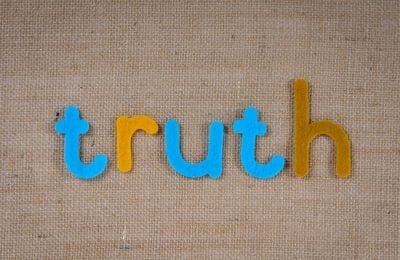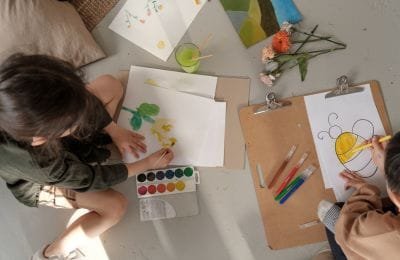Core Theme
Mini Lesson-4 (The Map is not the Territory)
This content is for Monthly and Annual members only.
This website serves as a rich repository of Theory of Knowledge (TOK) resources for the IB community. Carefully curated through deep exploration, reflection, and research, the content is designed to engage and support IB teachers, schools, and students. Covering all aspects of TOK, it offers insightful guidance and strategies to excel in TOK essays and exhibitions. Students gain access to hundreds of real-life examples and objects that spark critical thinking, while teachers benefit from a wealth of innovative ideas—including TOK lesson plans, unit planners, presentations, and hundreds of creative classroom activities—helping them teach TOK effectively and confidently.
Membership Login
Join Us Now
Enter a world of interactive learning where TOK, ATTL, and the IB Learner Profile come to life! Subscribe now for full access to innovative resources and connect with educators committed to inspiring, engaging education.
This content is for Monthly and Annual Members Only. You must be a member to access this content.View Membership Levels
This content is for Monthly and Annual Members Only. You must be a member to access this content.View Membership Levels
This content is for Monthly and Annual Members Only. You must be a member to access this content.View Membership Levels
This content is for Monthly and Annual Members Only. You must be a member to access this content.View Membership Levels
This content is for Monthly and Annual Members Only. You must be a member to access this content.View Membership Levels
This content is for Monthly and Annual Members Only. You must be a member to...
Mini Lesson-3 (When Data Lies)
This content is for Monthly and Annual members only.
This website serves as a rich repository of Theory of Knowledge (TOK) resources for the IB community. Carefully curated through deep exploration, reflection, and research, the content is designed to engage and support IB teachers, schools, and students. Covering all aspects of TOK, it offers insightful guidance and strategies to excel in TOK essays and exhibitions. Students gain access to hundreds of real-life examples and objects that spark critical thinking, while teachers benefit from a wealth of innovative ideas—including TOK lesson plans, unit planners, presentations, and hundreds of creative classroom activities—helping them teach TOK effectively and confidently.
Membership Login
Join Us Now
Enter a world of interactive learning where TOK, ATTL, and the IB Learner Profile come to life! Subscribe now for full access to innovative resources and connect with educators committed to inspiring, engaging education.
This content is for Monthly and Annual Members Only. You must be a member to access this content.View Membership Levels
This content is for Monthly and Annual Members Only. You must be a member to access this content.View Membership Levels
This content is for Monthly and Annual Members Only. You must be a member to access this content.View Membership Levels
This content is for Monthly and Annual Members Only. You must be a member to access this content.View Membership Levels
This content is for Monthly and Annual Members Only. You must be a member to access this content.View Membership Levels
This content is for Monthly and Annual Members Only. You must be a member to...
Mini Lesson-2 (Language Barriers in Knowledge)
This content is for Monthly and Annual members only.
This website serves as a rich repository of Theory of Knowledge (TOK) resources for the IB community. Carefully curated through deep exploration, reflection, and research, the content is designed to engage and support IB teachers, schools, and students. Covering all aspects of TOK, it offers insightful guidance and strategies to excel in TOK essays and exhibitions. Students gain access to hundreds of real-life examples and objects that spark critical thinking, while teachers benefit from a wealth of innovative ideas—including TOK lesson plans, unit planners, presentations, and hundreds of creative classroom activities—helping them teach TOK effectively and confidently.
Membership Login
Join Us Now
Enter a world of interactive learning where TOK, ATTL, and the IB Learner Profile come to life! Subscribe now for full access to innovative resources and connect with educators committed to inspiring, engaging education.
This content is for Monthly and Annual Members Only. You must be a member to access this content.View Membership Levels
This content is for Monthly and Annual Members Only. You must be a member to access this content.View Membership Levels
This content is for Monthly and Annual Members Only. You must be a member to access this content.View Membership Levels
This content is for Monthly and Annual Members Only. You must be a member to access this content.View Membership Levels
This content is for Monthly and Annual Members Only. You must be a member to access this content.View Membership Levels
This content is for Monthly and Annual Members Only. You must be a member to...
Mini Lesson-1 (The Truth Paradox)
The Truth Paradox-Knowledge Journey
This content is for Monthly and Annual members only.
This website serves as a rich repository of Theory of Knowledge (TOK) resources for the IB community. Carefully curated through deep exploration, reflection, and research, the content is designed to engage and support IB teachers, schools, and students. Covering all aspects of TOK, it offers insightful guidance and strategies to excel in TOK essays and exhibitions. Students gain access to hundreds of real-life examples and objects that spark critical thinking, while teachers benefit from a wealth of innovative ideas—including TOK lesson plans, unit planners, presentations, and hundreds of creative classroom activities—helping them teach TOK effectively and confidently.
Membership Login
Join Us Now
Enter a world of interactive learning where TOK, ATTL, and the IB Learner Profile come to life! Subscribe now for full access to innovative resources and connect with educators committed to inspiring, engaging education.
This content is for Monthly and Annual Members Only. You must be a member to access this content.View Membership Levels
This content is for Monthly and Annual Members Only. You must be a member to access this content.View Membership Levels
This content is for Monthly and Annual Members Only. You must be a member to access this content.View Membership Levels
This content is for Monthly and Annual Members Only. You must be a member to access this content.View Membership Levels
This content is for Monthly and Annual Members Only. You must be a member to access this content.View Membership Levels
This content is for Monthly and Annual Members Only. You must be a member to access this content.View Membership...
Assessment Outline
A Comprehensive Exploration of Epistemology
1. Introduction
The Importance of Knowledge
Knowledge has long been a central topic in philosophy. From ancient Greece to modern-day epistemology, philosophers have sought to understand the nature of knowledge: its sources, its structure, and how we come to know anything at all. Knowledge is not just an accumulation of facts but a deeply human process that influences our perceptions, decisions, and actions. It shapes the way we understand our world, ourselves, and others. In an age of information overload, understanding what constitutes knowledge is more important than ever.
Defining Knowledge
In its simplest form, knowledge is often defined as “justified true belief,” which means that for someone to "know" something, they must believe it to be true, have good reasons for that belief, and the belief must indeed be true. However, as we will explore, this classical definition has been criticized, especially by the philosopher Edmund Gettier, who demonstrated that it is not always sufficient. As such, knowledge is a complex and multifaceted concept that extends beyond simple definitions.
Types of Knowledge
This paper aims to answer the question: What is knowledge? By examining various definitions, theories, and critiques of knowledge, we will explore how knowledge is acquired, its limitations, and its ethical implications. We will look at knowledge through the lens of different philosophical traditions, from empiricism to rationalism to constructivism, and consider how language and power play roles in shaping knowledge.
2. Classical Definitions of Knowledge
Justified True Belief (JTB)
The classical definition of knowledge, “justified true belief,” holds that for a person to know something, three conditions must be met:1. Belief: The individual must believe the proposition to be true.2. Truth: The proposition must be true.3. Justification: There must be sufficient evidence or justification for the belief.This definition was widely accepted for centuries, but it faces significant challenges. The most famous critique came from Edmund Gettier in 1963, who showed that it is possible for someone to have a justified true belief without actually having knowledge. This led philosophers to reconsider the classical definition and seek a more robust understanding of knowledge.
This content is for Monthly and Annual members only.
This website serves as a rich repository of Theory of Knowledge (TOK) resources for the IB community. Carefully curated through deep exploration, reflection, and research, the content is designed to engage and support IB teachers, schools, and students. Covering all aspects of TOK, it offers insightful guidance and strategies to excel in TOK essays and exhibitions. Students gain access to hundreds of real-life examples and objects that spark critical thinking, while teachers benefit from a wealth of innovative ideas—including TOK lesson plans, unit planners, presentations, and hundreds of creative classroom activities—helping them teach TOK effectively and confidently.
Membership Login






